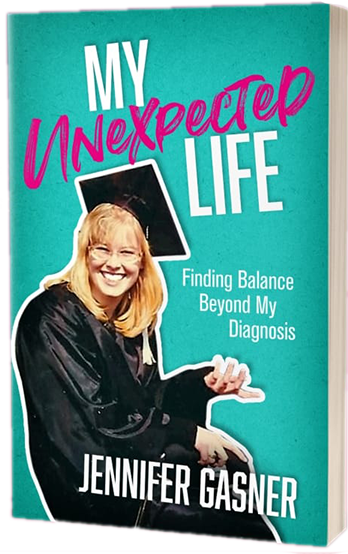“What is she doing that for? She shouldn’t do that in her condition!” That is how my mom’s friend reacted when she found out I had been picked to be a juror for a two-week criminal trial a month ago.
“What, does she think that when you started using a wheelchair, you lost your intelligence?” Mom said.
I laughed, knowing the sentiment is held by many. Because my body is different, so must be my mind. It’s also an example of ableism—the belief being disabled is inferior to being nondisabled or being disabled means you can’t do anything.
Ableism can take so many shapes. It can be overt, subtle, and even internalized by a disabled person.
I have been guilty of it all. I grew up with all these notions about disability because the images I saw conveyed a life of sadness and isolation. I use language that can be harmful, though I’m working on it, and I sometimes still feel like I am asking too much of people and worrying if, outside of my wheelchair, I look and sound like a “normal” person.
Internalized ableism wasn’t in my vocabulary until a few years ago, and I am now starting to recognize it. You’d think after nearly twenty-five years as a wheelchair user, I would know better, but being on a jury showed I am not there. And that’s ok.
Yes, I have the perfect excuse for getting out of jury duty. Friedreich’s ataxia, for many, could easily be considered a medical hardship. The days are long, writing notes is not easy, and transportation isn’t always convenient since I gave up driving nine years ago.
But I wanted to be on a jury—not only to experience something I haven’t, but also to be an example of what disabled people CAN do. My boyfriend fully supported getting me ready early every day and driving me to court.
The jury box had an accessible area where I sat with pride. I didn’t take the easy way out—which I had done many times before.
Nerves soon replaced my pride. When it became my turn to answer the questions, written on a green sheet of paper protected by a plastic cover, I got nervous about my voice. I felt it necessary to explain that I was not drunk and my slur was due to my disability. So that’s what I did. I was afraid of being perceived by others as unable to comprehend the case.
Jury selection took two days. I was a little surprised I wasn’t dismissed. So when the judge swore us in, I felt gratified and decided I would be quiet, not ask for anything, and be the good juror who could do everything herself.
When the judge gave us our instructions, she told the jury we’d get a notebook and pen to take notes. I wanted to take my notes the traditional way, but after day one of the trial, which was a Friday, I knew it wouldn’t work. I wouldn’t remember what my scrawls referred to by Monday.
What happened over the weekend was interesting. I felt like I digressed back to the days when I still used a walker and was interviewing for jobs right after graduating from college. I had worried about revealing my difficulty writing, thinking the potential employer would deem me unqualified for the job.
For jury duty, I worried asking for a laptop would be asking too much and I would be chastised for making the request—like I was being difficult and a burden. I discussed my concerns with some of my disabled friends, and they were certain nothing negative would happen. Their assurances helped me, yet it surprised me how ingrained that pattern of thinking I am not worthy still is.
I also questioned why I felt compelled to explain myself. Maybe it was to put lawyers, jurors, court staff, and the defendant at ease and show them I was approachable. Now I wonder, why is that my responsibility?
Despite knowing I do have value, I still have ideas of how other people perceive me—my speech slurs, and I don’t drive my power wheelchair in a straight line. I want to look and sound “normal.” What if they think I am unintelligent and drunk? Why does that matter?
Monday morning, I asked the court clerk before the trial began if I could get a laptop. She said she had to discuss it with the judge. I was left to wait in the hallway for the answer. My heart raced until the clerk called me into the courtroom and said I was “in the hot seat.”
I rolled into the courtroom prepared to argue and explain. But, to my surprise, the judge asked if I preferred a laptop or tablet.
What? She seemed happy and thanked me for saying something. I was surprised for some reason. Why had I expected a fight or discrimination?
I asked for a laptop and thanked her. And for some reason, I felt compelled to apologize for asking and not having said anything on Friday. Why? Of course, I wanted to be polite, but why was I sorry for asking? Internalized ableism. I didn’t want to be difficult and needy.
Despite knowing better, I don’t think I will ever be rid of this idea that I am asking too much or being an inconvenience. But I’m glad I can recognize it and maybe next time, remind myself I am worthy.
Until the next…


You are worthy!!!…and…so jealous you got to be a juror! 🙂
Great Job, so proud of you!